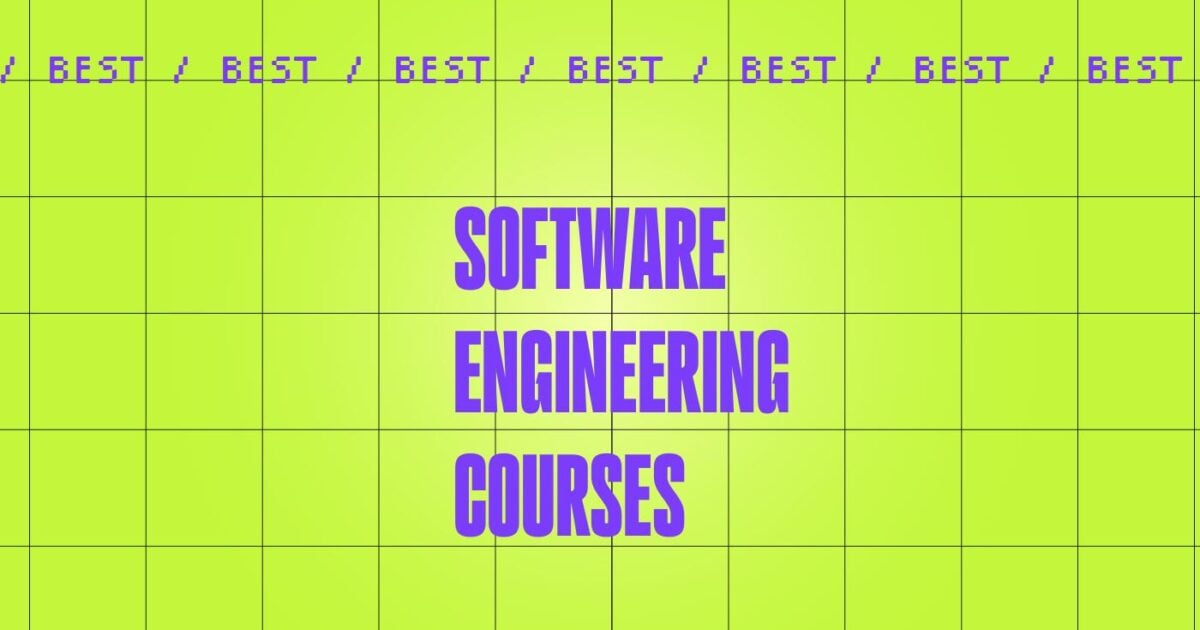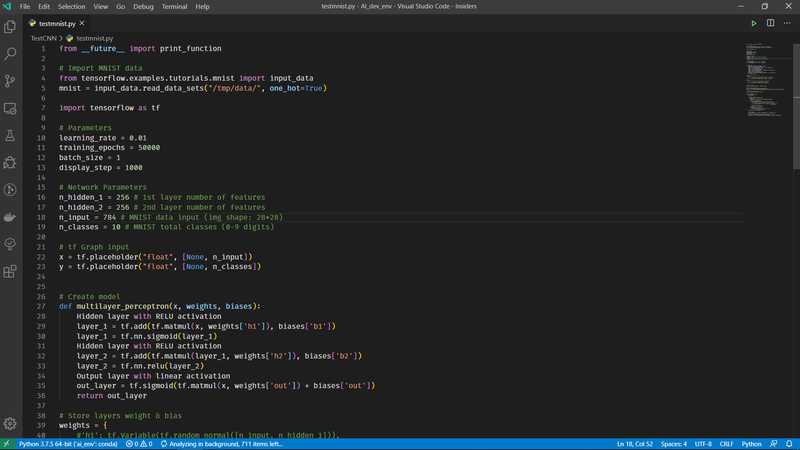All Categories
Featured
Table of Contents
- – Some Known Factual Statements About How I’d Le...
- – Indicators on Leverage Machine Learning For So...
- – What Does Pursuing A Passion For Machine Lear...
- – The 5-Minute Rule for 🔥 Machine Learning Eng...
- – The 3-Minute Rule for I Want To Become A Mac...
- – The Best Guide To Top Machine Learning Caree...
To ensure that's what I would do. Alexey: This comes back to among your tweets or possibly it was from your course when you compare 2 approaches to learning. One strategy is the trouble based strategy, which you just discussed. You locate a problem. In this case, it was some trouble from Kaggle regarding this Titanic dataset, and you just discover just how to resolve this trouble making use of a particular tool, like decision trees from SciKit Learn.
You initially find out mathematics, or direct algebra, calculus. When you recognize the mathematics, you go to device discovering theory and you find out the theory.
If I have an electric outlet right here that I need replacing, I do not wish to most likely to college, spend 4 years understanding the mathematics behind electrical energy and the physics and all of that, just to change an outlet. I would instead begin with the electrical outlet and discover a YouTube video that assists me undergo the trouble.
Santiago: I truly like the idea of beginning with an issue, trying to throw out what I know up to that problem and recognize why it doesn't function. Get hold of the devices that I need to solve that problem and start excavating deeper and deeper and deeper from that point on.
That's what I generally advise. Alexey: Maybe we can chat a bit regarding finding out sources. You pointed out in Kaggle there is an intro tutorial, where you can obtain and learn how to make choice trees. At the beginning, prior to we began this interview, you pointed out a pair of publications.
Some Known Factual Statements About How I’d Learn Machine Learning In 2024 (If I Were Starting ...
The only requirement for that course is that you recognize a little of Python. If you're a developer, that's an excellent starting factor. (38:48) Santiago: If you're not a developer, then I do have a pin on my Twitter account. If you go to my profile, the tweet that's mosting likely to be on the top, the one that claims "pinned tweet".

Also if you're not a programmer, you can begin with Python and function your way to more device understanding. This roadmap is concentrated on Coursera, which is a system that I truly, really like. You can examine all of the programs for cost-free or you can pay for the Coursera registration to obtain certificates if you want to.
One of them is deep learning which is the "Deep Discovering with Python," Francois Chollet is the writer the person who developed Keras is the author of that book. By the way, the 2nd edition of the book is about to be launched. I'm truly eagerly anticipating that.

It's a publication that you can begin with the beginning. There is a whole lot of understanding right here. So if you couple this book with a program, you're going to make the most of the benefit. That's a terrific way to begin. Alexey: I'm simply looking at the questions and one of the most voted question is "What are your favorite publications?" There's two.
Indicators on Leverage Machine Learning For Software Development - Gap You Should Know
Santiago: I do. Those two publications are the deep learning with Python and the hands on equipment discovering they're technological publications. You can not state it is a significant publication.
And something like a 'self aid' publication, I am actually right into Atomic Routines from James Clear. I picked this publication up recently, by the means.
I assume this course specifically focuses on people that are software program engineers and that desire to shift to machine knowing, which is specifically the subject today. Santiago: This is a training course for individuals that want to start however they really don't recognize how to do it.
What Does Pursuing A Passion For Machine Learning Mean?
I speak about details problems, depending upon where you are particular troubles that you can go and address. I provide regarding 10 different problems that you can go and solve. I speak about books. I talk concerning work possibilities things like that. Things that you wish to know. (42:30) Santiago: Picture that you're considering entering into machine learning, but you need to speak to somebody.
What books or what courses you must take to make it right into the market. I'm really working right currently on version two of the training course, which is simply gon na replace the very first one. Given that I developed that initial training course, I've found out so a lot, so I'm functioning on the 2nd variation to replace it.
That's what it's about. Alexey: Yeah, I bear in mind seeing this training course. After watching it, I felt that you somehow entered into my head, took all the thoughts I have regarding how engineers need to approach getting involved in artificial intelligence, and you put it out in such a succinct and encouraging manner.
I recommend everyone that is interested in this to check this course out. One point we promised to get back to is for individuals who are not necessarily great at coding exactly how can they improve this? One of the points you pointed out is that coding is extremely vital and many people fail the equipment finding out training course.
The 5-Minute Rule for 🔥 Machine Learning Engineer Course For 2023 - Learn ...
So how can individuals enhance their coding skills? (44:01) Santiago: Yeah, to ensure that is a fantastic inquiry. If you don't recognize coding, there is most definitely a path for you to get efficient device discovering itself, and then get coding as you go. There is most definitely a course there.

Santiago: First, get there. Do not worry concerning machine learning. Focus on developing points with your computer system.
Learn Python. Learn just how to fix various problems. Artificial intelligence will certainly end up being a great enhancement to that. By the way, this is just what I suggest. It's not needed to do it this method especially. I recognize people that began with artificial intelligence and included coding later on there is absolutely a means to make it.
Focus there and afterwards return right into artificial intelligence. Alexey: My spouse is doing a course currently. I don't bear in mind the name. It has to do with Python. What she's doing there is, she utilizes Selenium to automate the job application procedure on LinkedIn. In LinkedIn, there is a Quick Apply switch. You can use from LinkedIn without filling out a large application.
It has no equipment understanding in it at all. Santiago: Yeah, definitely. Alexey: You can do so numerous things with devices like Selenium.
Santiago: There are so many jobs that you can develop that don't call for equipment knowing. That's the very first guideline. Yeah, there is so much to do without it.
The 3-Minute Rule for I Want To Become A Machine Learning Engineer With 0 ...
It's extremely handy in your job. Bear in mind, you're not just restricted to doing one point below, "The only point that I'm mosting likely to do is construct designs." There is way more to offering solutions than developing a model. (46:57) Santiago: That comes down to the second part, which is what you just pointed out.
It goes from there communication is vital there mosts likely to the information part of the lifecycle, where you get hold of the information, gather the data, keep the information, change the data, do every one of that. It after that mosts likely to modeling, which is usually when we chat about artificial intelligence, that's the "hot" part, right? Building this model that anticipates points.
This calls for a great deal of what we call "maker knowing operations" or "How do we deploy this point?" After that containerization comes right into play, keeping an eye on those API's and the cloud. Santiago: If you look at the whole lifecycle, you're gon na understand that a designer needs to do a number of different things.
They specialize in the data data experts, as an example. There's people that concentrate on release, upkeep, etc which is a lot more like an ML Ops engineer. And there's people that specialize in the modeling component? Some individuals have to go through the whole range. Some people have to service every action of that lifecycle.
Anything that you can do to come to be a far better engineer anything that is going to help you supply value at the end of the day that is what issues. Alexey: Do you have any details referrals on just how to approach that? I see 2 points at the same time you discussed.
The Best Guide To Top Machine Learning Careers For 2025
There is the component when we do data preprocessing. 2 out of these 5 actions the data prep and version release they are very hefty on engineering? Santiago: Definitely.
Learning a cloud company, or how to use Amazon, exactly how to make use of Google Cloud, or when it comes to Amazon, AWS, or Azure. Those cloud suppliers, discovering just how to develop lambda features, every one of that things is definitely going to repay here, because it has to do with developing systems that clients have access to.
Do not waste any kind of chances or don't claim no to any type of possibilities to end up being a far better designer, because all of that elements in and all of that is going to aid. Alexey: Yeah, many thanks. Possibly I just intend to add a bit. The things we went over when we chatted concerning just how to come close to artificial intelligence likewise apply right here.
Rather, you assume first regarding the issue and after that you try to fix this trouble with the cloud? You focus on the issue. It's not feasible to discover it all.
Table of Contents
- – Some Known Factual Statements About How I’d Le...
- – Indicators on Leverage Machine Learning For So...
- – What Does Pursuing A Passion For Machine Lear...
- – The 5-Minute Rule for 🔥 Machine Learning Eng...
- – The 3-Minute Rule for I Want To Become A Mac...
- – The Best Guide To Top Machine Learning Caree...
Latest Posts
Data Science Vs. Data Engineering Interviews – Key Differences
Microsoft Software Engineer Interview Preparation – Key Strategies
Apple Software Engineer Interview Questions & How To Answer Them
More
Latest Posts
Data Science Vs. Data Engineering Interviews – Key Differences
Microsoft Software Engineer Interview Preparation – Key Strategies
Apple Software Engineer Interview Questions & How To Answer Them